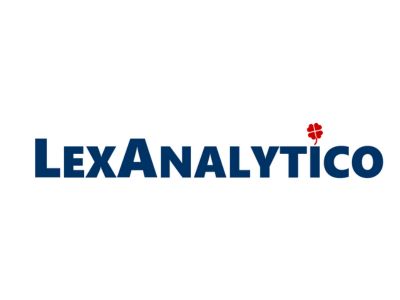In recent years, the advancement of artificial intelligence (AI) tools has brought about significant changes in how various industries engage with technology. From sophisticated machine learning algorithms to natural language processing and computer vision systems, AI has transformed the way people approach problem-solving. Even in the legal profession, AI tools have proven instrumental in optimizing resources through task automation and human error reduction. However, in a field that upholds the utmost standards of ethics and professionalism, the use of AI chatbots raises questions about lawyers’ responsibility and accountability. While the integration of such advanced technology offers undeniable benefits, it also carries potential risks that demand careful consideration. This article discusses the impact of AI tools in the legal field and explores the possibilities they hold for the future.
As AI technology continues to advance, chatbots like ChatGPT are poised to become prominent tools in supporting lawyers and legal professionals. Their ability to simplify complex legal concepts can be of great value to legal professionals. An exemplary instance of this occurred in the Punjab & Haryana High Court, India[1], where the judge sought ChatGPT’s opinion in a criminal petition. The court clarified that the use of ChatGPT can solely be used to gain insights into bail jurisprudence and the role of cruelty as a factor. This ground-breaking case has set a progressive precedent, paving the way for future AI integration in the legal landscape.
While AI chatbots like ChatGPT have shown remarkable potential, they are not without flaws. One significant concern is the inadvertent generation and reinforcement of false information, especially if the training data contains inaccuracies or misleading content. A recent incident exemplifies this issue, where a judge reprimanded a lawyer for filing a petition filled with fabricated citations and legal ratios[2]. The lawyer’s overreliance on ChatGPT led to the inclusion of false case laws in the response. This highlights the problem of blindly exploiting such AI tools, particularly in situations where accountability and understanding are crucial.
When using AI tools like ChatGPT, it’s crucial to keep in mind that it’s a machine learning model. Its responses are generated based on patterns learned during training and existing information available on the internet. Therefore, there’s no guarantee that the information provided is accurate or reliable. OpenAI’s approach involves predicting the next word in a sentence based on the preceding context, which contributes to the comprehensive and in-depth nature of the answers. However, it’s important to note that the answers can unintentionally perpetuate biases present in the training data, potentially leading to unfair or discriminatory outcomes.
AI tools pose a potential risk to the confidentiality of client information. These tools rely on user inputs, which can include sensitive data about the client. As part of their functioning, AI models often store data for training and refining their capabilities, which can lead to the inadvertent release of confidential information into public domains. This breach of confidentiality is particularly concerning in cases related to intellectual property (IP), where maintaining the secrecy of the invention until filed for patent is of paramount importance.
Despite some claims suggesting that AI tools like ChatGPT could completely replace lawyers, this is not likely to happen because these tools lack the ability to think like legal professionals. Qualities such as honesty, wit, industry, eloquence, judgment, and fellowship are cultivated in lawyers through years of education and practical experience. While AI can offer valuable insights, it cannot replicate the depth of knowledge and real-world expertise gained by legal professionals. As AI capabilities advance, its integration into various industries is inevitable. However, it is crucial to strike a balance and ensure that human oversight remains essential to avoid excessive reliance on AI systems.
The legal profession can indeed reap numerous benefits from AI tools, but it’s vital to acknowledge their limitations. While AI can handle routine tasks with speed and precision, complex legal matters often require human expertise, empathy, and nuanced understanding. Legal professionals must exercise their judgment and maintain ultimate responsibility over decision-making and advice given to clients. Additionally, ethical considerations, data privacy, and ensuring the transparency of AI-generated results are critical factors to address when using AI tools in the legal domain.
In conclusion, AI tools in the legal profession can improve efficiency, but it’s essential to maintain human judgment and accountability. AI tools have the potential to revolutionize the legal profession by increasing efficiency and augmenting legal research and tasks. However, while leveraging these benefits legal professionals should adopt a thoughtful and responsible approach when integrating AI into their practice, ensuring that human oversight remains central and that AI complements rather than replaces human expertise. Striking the right balance will lead to a symbiotic relationship between AI and legal professionals, ultimately benefitting clients and the legal community as a whole.
[1] Aman Lohan and others v. State of Haryana and others, CRM-M No. 11142 of 2022
References
- https://www.law.berkeley.edu/library/legal-research/chatgpt/
- https://clp.law.harvard.edu/knowledge-hub/magazine/issues/generative-ai-in-the-legal-profession/the-implications-of-chatgpt-for-legal-services-and-society/
- https://www.researchgate.net/publication/369129406_ChatGPT_and_a_New_Academic_Reality_Artificial_Intelligence-Written_Research_Papers_and_the_Ethics_of_the_Large_Language_Models_in_Scholarly_Publishing
- https://katten.com/chat-gpt-lets-chat-about-ip-and-dp-in-the-uk
- https://timesofindia.indiatimes.com/gadgets-news/read-chatgpts-response-on-bail-plea-of-a-murder-accused/articleshow/99091097.cms
- https://www.csmonitor.com/USA/Justice/2023/0530/AI-in-the-courtroom-Judges-enlist-ChatGPT-help-critics-cite-risks#:~:text=Indian%20High%20Court%20judge%20Anoop,to%20help%20justify%20his%20reasoning.
- https://www.indiatoday.in/technology/news/story/lawyer-faces-trouble-after-using-chatgpt-for-research-ai-tool-comes-up-with-fake-cases-that-never-existed-2385542-2023-05-28
- https://www.outlookindia.com/national/in-the-crosshairs-chat-gpt-the-job-market-and-the-dawn-of-ai–news-275505
- https://www.dentons.com/en/insights/articles/2023/june/8/responsible-use-of-chat-gpt-by-lawyers#:~:text=For%20lawyers%2C%20the%20use%20of,translation%20and%20basic%20contract%20provisions.
[2] Mata v. Avianca, Doc. No. 22-cv-1461 (S.D.N.Y. May 4, 2023),

Written by Gyanveer Singh

Written by Shreshtha Menon
Intern at LexAnalytico Consulting
You may also like…
Welcome to Hangzhou! The AIPPI World Congress 2024
AIPPI World Congress 2024 opened its doors in Hangzhou, China, on Saturday, 19 October. All attending were warmly...
Crystalizing plant variety infringement protection in India
On September 20, 2024, the Delhi High Court ruled in Pioneer Overseas Corporation v. M/s Evercrop Agro Science &...
German criminal court finds three defendants guilty of fraud for sending misleading invoices to EUIPO customers
In September 2024, the Munich Court (Germany) found three defendants guilty of commercial gang fraud for sending...
Contact us to write for out Newsletter














